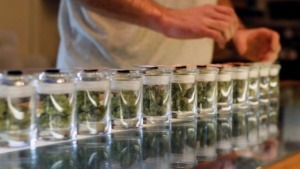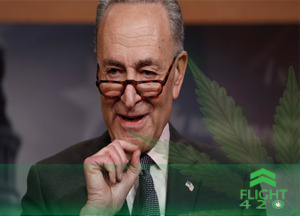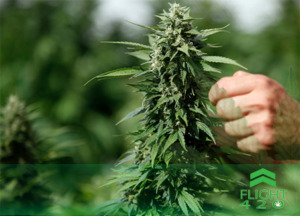Don't wanna be here? Send us removal request.
Text
H. Upmann Sir Winston Gran Reserva Cosecha 2011
H. Upmann Sir Winston Gran Reserva Cosecha 2011
H. Upmann Sir Winston Gran Reserva Cosecha 2011 will be available in the couple of weeks to the different markets around the world. Habanos, S.A. is pleased to present the first Gran Reserva from the H. Upmann brand in the Sir Winston (47 x 178 mm) vitola . This is one of the brand’s most special cigars, very popular with H. Upmann enthusiasts as well as with Habanos enthusiasts in general; they will now have the opportunity to enjoy this vitola with additional aging of its leaves, in a limited production.

Sir Winston of H. Upmann is an icon in the brand’s portfolio and one of the best known Habanos appreciated by enthusiasts around the world with the Julieta No 2 vitola. This is a long and pleasant smoking format, which combines the soft to medium strength flavour of its blend with the delicate and aromatic character that the aging of its leaves provides. H. Upmann is one of the oldest and most prestigious Habanos brands and was founded back in 1844. This launch inaugurates the Gran Reserva concept for the brand after having presented its first Reserva with the H. Upmann No 2 vitola in 2014 with carefully selected leaves from the harvest of 2010. In order to prepare this Gran Reserva from H. Upmann, the best tobacco leaves harvested in 2011 in Vuelta Abajo *, Pinar del Rio *,Cuba* were selected. All the leaves making up the Habano (filler, binder and wrapper) have undergone a long and careful five-year of ageing process. With this additional ageing process, the tobacco releases tannins which give the tobacco leaves a rounder, sweeter and more aromatic. This launch is a unique and exclusive production of 5,000 numbered cases with 15 Habanos in each, presented in the exquisite packaging that characterizes the Gran Reserva, with an elegant black lacquer finish and the brand and the concept’s seal printed in gold on the lid. These Habanos have been made Totalmente a Mano con tripa larga – Totally Handmade with Long Filler – with leaves specially selected by master blenders. H. Upmann Sir Winston Gran Reserva Cosecha 2011 is an option for those who like a pleasant blending and a light to medium Habano flavour. H. Upmann Sir Winston Gran Reserva Cosecha 2011 will be available in the different markets around the world in the couple of weeks. Brand: H. Upmann Market Name: Sir Winston Factory Name: Julieta No 2 Dimensions: 47 ring gauge (18.65 mm) x 178 mm length. Presentation: Special Series (SPB) of 5,000 individually numbered lacquered cases of 15 units each


https://123eforum.com/about-cohiba-50-aniversario/cigars-and-tobacco/ Read the full article
#both.montreal#botl#Canada#Cigars#cosecha#cuba#CubanCigars#GranReserva#H.UpmannSirWinstonGranReservaCosecha2011#Habanos#Hupmanncigars#limitededitioncigars#sirwinstongranreserva
2 notes
·
View notes
Text
Cannabis retail locations 'missed opportunity' for small-business owners, says CFIB
Cannabis retail locations 'missed opportunity' for small-business owners, says CFIB
Loblaws tops list of 24 locations chosen by Cannabis NL

The locations of 24 cannabis retail stores across Newfoundland and Labrador — detailing where you will be able to buy legal marijuana — were released Monday, and many will be attached to Dominion supermarkets that already have liquor stores. But the list was criticized by the provincial branch of the Canadian Federation of Independent Business for being a "missed opportunity for small business owners." The list was provided by Cannabis NL, the arm of the Newfoundland and Labrador Liquor Corporation that the provincial government has charged with regulating cannabis retailers. Sharon Sparkes, president and CEO of the Newfoundland Liquor Corporation, said there were more than 80 applications that were whittled down to the two dozen announced Monday. "Each of these bring a retail experience to the table that ultimately will provide a safe, secure access," said Sparkes. Vaughn Hammond, CFIB's director in Newfoundland and Labrador, said the list shows the legal marijuana industry will be run largely by the provincial government and big business. "The structure of the RFP to begin with more or less made it difficult for small business owners to even come up with an operation that could even meet their requirements and criteria," he told CBC on Monday afternoon. The list includes at least one location in a number of major towns, from Labrador City to Deer Lake to Carbonear.

Five locations have been approved in St. John's, three in Conception Bay South and two in Mount Pearl, so far. Ten of the locations are in existing Dominion grocery stores across the province that already have liquor stores attached, including in Gander and Stephenville. Sparkes touted the diversity of the types of the locations. The bulk of the locations are in what the province considers Tier 1 — standalone stores restricted to people 19 and up — and Tier 4 — behind a counter, hidden from view, similar to how convenience stores sell tobacco now. But there are also a Tier 2 — a 19-and-up-only enclosed area in larger retail space — and a Tier 3 — a dedicated service desk in a larger retail space, away from the main cash counter — location on the list.

But there are gaps; several areas in the province had either no qualifying proposals, or no proposals at all. The province will be issuing a new request for proposals in six areas: Labrador City (one allocated licence). Central Labrador and Happy Valley-Goose Bay (no proposals received). Southern Newfoundland, including Port aux Basques (no proposals received). Northern Peninsula (no qualifying proposals received). Bonavista Peninsula (no qualifying proposals received). Burin Peninsula. Some areas in larger centres — such as the Southlands and Goulds areas of St. John's — had no qualifying proposals, but won't see a new RFP. Sparkes said for now, the province expects residents in those areas to be able to use nearby suppliers. The smaller the population centre, said Hammond — such as in Labrador — the less likely a small-business owner would feel he or she could compete with the already established illegal supply. The president of the liquor corporation acknowledged the list skews largely to larger operations. "I do think it's somewhat challenging for a retailer right now with a brand new industry, so I guess I'm not surprised by the fact that the majority are established retailers," Sparkes said.

An independent businessman, Thomas H. Clarke, who did receive approval — for Portugal Cove-St. Phillips — says he feels lucky to have done so. "Loblaws has got the most licences, and that concerns me a little bit, because I was hoping that more local entrepreneurs would have a chance to open their businesses and keep the money here and keep the jobs here, rather than big corporations taking over."

The early legal supply of weed to this province is likely to come from Canopy Growth's facility in Smiths Falls, Ont., until a $55-million grow operation opens in St. John's late next year. (Evan Mitsui/CBC) The news comes on the same day that Canopy Growth — which the province has chosen as the main supplier of cannabis once it's legalized by the federal government – unveiled St. John's as the location for a $55-million production facility to supply the local market. More retail locations are expected to be approved before that happens. And while Sparkes says the province will be readying when legalization — expected this summer — happens, some details still need to be ironed out, such as pricing. "Our pricing structure is still very much under review, and we're working with Canopy, obviously, we have an agreement with them, we're working with them. We've put out an expression of interest in regards to other cannabis suppliers, and we'll work with them as well on the pricing," she said. "Right now, I cannot say definitively where the pricing will fall; however, we're certainly working on that." Read the full article
0 notes
Text
Cannabis retailers may pay 10 times more for a business licence than Edmonton liquor stores
Cannabis retailers may pay 10 times more for a business licence than Edmonton liquor stores
'We’re OK with that because we want to commit to this exciting opportunity,' Fire & Flower says

A budding cannabis retailer isn't swayed from setting up shops in Edmonton, even if they have to pay 10 times more for a business licence than a liquor store. Fire & Flower moved its headquarters from Toronto to Edmonton this year and has applied for business licences to open 16 stores in the capital city. Nathan Mison, vice-president of government and stakeholder relations for Fire & Flower, said the company is OK with potentially paying the $2,500 a year for a licence compared to $235 for liquor stores. Mison sees it as an opportunity to diversify the economy and eventually share the knowledge and practices with other countries looking to legalize marijuana, like Australia, Germany and the United Kingdom. "Canada is really at the forefront of an exciting opportunity," he told CBC News Monday. "Everybody in the world is watching how we're going to do it." The $2,500 a year cost is on top of a one-time $5,600 development permit fee for cannabis retailers, bringing it to a potential total of $8,100 up front for retailers. The cost recommendation is the minimum needed to recover direct costs of legalizing marijuana, including bylaws and rezoning on the city's part. The city estimates it will spend $4.3 million on cannabis legalization, with $1.4 million going to police for one-time funding for equipment and training. "There is such a level of uncertainty in how this is being rolled out," Mison added. "And we're OK with that because we want to commit to this exciting opportunity and something that Canadians really own at the forefront of a worldwide developing sector." Kyle Murray, a University of Alberta professor of marketing, said the amount seems reasonable. "If you're going to be a viable retail location, then an $8,000 up–front cost isn't going to make or break you." He added that Alberta is favourable to entrepreneurs because it has fewer rules and government restrictions on the number of businesses allowed. "We'll have no problem attracting new businesses," he told CBC News. "Here it's wide open. It's a bit of the Wild West and I think if you're a retailer, that's kind of where you want to be." The city will be dealing with different issues in monitoring cannabis as opposed to monitoring alcohol, which has been regulated for decades. Coun. Michael Walters said the city is still waiting to hear how much it will get from tax on marijuana sales. The federal government will take 25 per cent of national tax revenues while allowing the provinces to take 75 per cent. On top of that, the provincial government plans to impose another 10 per cent on sales in Alberta. "The challenge for us is, has been and I think will continue to be, is what kind of support are we going to get from the federal government through the provinces." "Until then, we're left in the dark," he said. The recommended $2,500 on cannabis retailers "isn't full cost recovery by any means," he added. That's one of the lower options of five recommendations in a city report — the fifth and most expensive, is a yearly business licensing fee of $137,000, an amount Walters calls "astronomical."

The city considered five options for cannabis retailers licence fees. (City of Edmonton) "That kind of blows the principal of business friendliness out of the water." The issue will be before city councillors Tuesday. Alberta Gaming and Liquor Commission (AGLC) said they've received 482 applications for cannabis retail licences as of April 30th. Municipalities in Alberta have to approve applications before the AGLC issues a business licence. The city estimates about 100 companies will apply for a cannabis retail licence in Edmonton this year. Read the full article
0 notes
Text
Olds College teams up with pot producer
Olds College teams up with pot producer to offer cannabis courses

This ain’t your dad’s farm. Olds College on Tuesday announced it’s teaming up with Alberta pot producer Sundial and pharmaceutical company Terra Life Sciences to create a cannabis production program at the rural school. The class, offered through the college’s continuing education program, consists of four online courses followed by a two-week field study that will see students get hands-on experience at Sundial’s 31,000 sq.-ft. facility just outside Airdrie. The college is also developing a second continuing education class, to be offered in the fall, focusing on the retail side of the cannabis industry. Debbie Thompson, a vice-president and chief innovation officer at Olds College, said the school has a long track record of excellence in agriculture, so it’s only natural that it remains on the cutting edge with the booming new industry. “We have a lot of industry moving into Olds and we’ve worked very diligently to find the best way to work with the industry,” she said. “Through our conversations with our cannabis education and research industry advisory committee, we determined the best way to support the industry is through providing education.” The online courses will educate students in horticulture production, crop production and facilities, legislation and documentation around cannabis, and horticulture for cannabis production. Thompson said it’s unclear at this point what the interest level will be, but educators will have the ability to expand it either through its continuing education program, or alongside the college’s regular horticultural programs, should there be enough demand in the future. Sundial spokeswoman Claire Buffone-Blair said joining ranks with the agriculturally focused campus is a perfect fit for the company, which will need a knowledgeable workforce as it aims to open the first phase of its eventual 500,000 sq.-ft. facility in Olds later this year. “I would say it’s a very complex process. It requires a good understanding of not only the plants, but it’s an industry that’s highly regulated so everything has to follow a certain standard operating procedure,” she said. “Everyone working in this space not only has to understand Cannabis 101, but all the regulations around it.” Sundial CEO Torsten Kuenzlen said the company has formed a strong relationship with the central Alberta town, about 100 km north of Calgary, and the latest partnership will not only further cement that, but help create a corps of experienced workers who’ll be able to grow alongside the burgeoning industry, expected to grow even more after recreational cannabis is legalized later this year. “Sundial is committed to the development of a highly skilled cannabis production workforce in Alberta,” he said. “This partnership with Olds College allows us to support our local community while preparing individuals for employment in the cannabis industry.” Registration for the new program opened Tuesday, with the first classes expected to begin in July. Read the full article
0 notes
Text
Senators recommend delaying cannabis bill for a year to address Indigenous issues
Senators recommend delaying cannabis bill for a year to address Indigenous issues

Members of the Senate's Aboriginal peoples committee are recommending the Liberal government hold back on legalizing cannabis for up to a year in order to address its potential for harmful effects in Indigenous communities. The committee, chaired by Liberal Saskatchewan Sen. Lillian Dyck, said in its report on Bill C-45 that the government simply did not consult enough with First Nations, Inuit and Métis communities before pushing ahead with its plan to legalize the drug. "Many communities are really worried about the potential adverse effects on their members, and especially on their youth, and it may be even worse because of the trauma in their communities," Dyck said, adding existing social issues in Indigenous communities could be made worse by increased drug use. If passed, the amendment would delay the bill's full implementation for up to a year. As currently written, the bill stipulates the law does not come into force until a date is fixed by an order of the governor-in-council — Prime Minister Justin Trudeau's cabinet. A final vote on the bill is scheduled to occur in the Senate on or before June 7, with legalization expected to follow eight to 12 weeks later. The committee said the government should take that time to negotiate a revenue-sharing agreement with First Nations communities. The committee has heeded a request from Manny Jules, the chief commissioner of the First Nations Tax Commission, who recommended the federal government and the provinces hand cannabis taxing authority over to First Nations governments so they can impose their own levy on marijuana grown and sold on reserves. "The way the bill has been crafted shows there was very little consultation," Conservative Alberta Sen. Scott Tannas told reporters. "There was no thought given to the , and there are First Nations that are keen on economic opportunities that would come from the legitimate production of cannabis and they feel that they're behind. There are Indigenous governments that want to see economic development and get revenue ... None of that appears to have been considered." First Nations say their governments will face new social challenges from legal cannabis, but they stand to gain nothing from Ottawa's plan. Under Jules' proposal, Ottawa and the provinces would cede ground to First Nations to collect taxes, providing a new source of much-needed revenue to their communities. The committee recommended an amendment to the legislation that would implement "appropriate excise tax collection and sharing measures from revenue generated by cannabis produced on First Nations lands." "The Department of Finance immediately work with interested First Nations and First Nations institutions to allow them to collect cannabis excise tax revenues," the committee report said, calling for an amendment to the First Nations Fiscal Management Act to provide for a First Nation law-making power to levy cannabis excise taxes on reserve lands. The funds could then be used to develop cannabis-related laws and regulations on-reserve, fund campaigns to educate young people about the dangers of cannabis use and bolster First Nations police forces. The recommendation to extend taxation powers to First Nations will now be referred to the Senate's social affairs committee, which will make the ultimate decision on which amendments to the bill should get the green light. The whole Senate would have to vote on the amended bill, which — if approved — would go back to the House of Commons for a final vote. The Aboriginal peoples committee also found there is no "culturally appropriate" educational material ready to ensure Indigenous people understand the new law — which will legalize the drug, lead to the creation of provincially-run retail distribution systems and allow for home cultivation, among other sweeping changes to the country's drug laws. The committee heard from a number of witnesses who said the public education campaign that addresses the health effects of cannabis is woefully inadequate and is rolling out too close to the proposed legalization date — giving people too little time to learn about its harmful effects. It also noted a number of First Nations police witnesses warned they are unprepared for a wave of legal pot. In its report, the committee quoted Steve Burton of the Tsuut'ina Nation Police Service, a reserve outside Calgary, who said his force doesn't have the tools it needs to enforce the act — which actually stiffens penalties for some offences, including giving cannabis to a minor — or to monitor drug-impaired driving. "We don't have the people trained, the drug recognition experts. Those are training programs that require extensive time ... For us to arrange that training when we're already low on manpower, we have to find a way to backfill that position or positions with other officers," he said. In an appearance before the Senate's social affairs committee earlier this week, the Canadian Real Estate Association encouraged the government to suspend provisions that will allow people to grow pot at home until there are better regulations in place to avoid property damage and sinking home prices. The Liberal government has said it plans to limit home marijuana growers to four plants per household. The government initially intended to limit plants to 100 centimetres in height, but the House of Commons approved an amendment that removed that restriction. Read the full article
0 notes
Text
Itsa Flavour Card Mint Chill
Itsa Flavour Card Mint Chill
FLAVOR EVERYTHING
Everything tastes better when it tastes better. You can’t argue with that.

Itsa flavor cards: so you can add more flavor and aroma to your life. Itsa works best with dry stuff in enclosed spaces—you can flavor tea bags in a container, for example, but not a mug of hot tea. Beyond that, the possibilities are endless. Buy Itsa Flavour Card online at 123emarket.com Free Delivery in Canada Read the full article
#Alberta#Canada#flavourCard#FreeDelivery#Itsaflavorcard#ItsaFlavourCard#itsaflavourcardmint#Itsamint#mint#Montreal#VANCOUVER
0 notes
Text
Itsa Flavour Card Online Information
Itsa Flavour Card Online Information
Itsa is the revolutionary new way to infuse your dry food and dry beverage products with flavor and aroma. Unlike some flavor products you may have tried, Itsa actually works.
How it works ITSA FLAVOUR CARDS:
1-

Drop a flavor card in your _______.
Choose from twelve flavors, all made from premium, food-grade ingredients.
2-

Let it sit for a while.
Give the card some time to infuse your product with flavor - the longer, the stronger. Each flavor card is a little different, so check the back of the package or the flavor pages for instructions.
3-

Enjoy.
That's it. Welcome to higher flavor. There's no turning back now. Check out our FAQ page for even more information.
Itsa flavour card best sellers:
Itsa flavour card Pictures:
ITSA FLAVOUR CARD FLAVOUR EVERYTHING
Everything tastes better when it tastes better. You can’t argue with that. That’s why we sale Itsa flavor cards: so you can add more flavor and aroma to your life. Itsa works best with dry stuff in enclosed spaces—you can flavor tea bags in a container, for example, but not a mug of hot tea. Beyond that, the possibilities are endless.
How will you use Itsa? Browse the ideas below and get inspired.
Teas | Granola | Coffee | Popcorn| Rice | Spices |Herbs |Oatmeals |Mixed nuts
Buy Itsa Flavour Card
Itsa Flavor Card Mint Blueberry |Itsa Flavor Card Cherry Drop |Itsa Flavor Card Mint Raspberry |Itsa Flavor Card Classic Anise Itsa Flavor Card Creamy Peach | Itsa Flavor Card Exotic Cassis |Itsa Flavor Card Gingerbread |Itsa Flavor Card Mellow Melon Itsa Flavor Card Mint Lime |Itsa Flavor Card Mint Chill |Itsa Flavor Card Spearmint Freeze | Itsa Flavor Card White Grape Read the full article
0 notes
Text
Itsa Flavour Card Online Information
Itsa Flavour Card Online Information
Itsa is the revolutionary new way to infuse your dry food and dry beverage products with flavor and aroma. Unlike some flavor products you may have tried, Itsa actually works.
How it works ITSA FLAVOUR CARDS:
1-

Drop a flavor card in your _______.
Choose from twelve flavors, all made from premium, food-grade ingredients.
2-

Let it sit for a while.
Give the card some time to infuse your product with flavor - the longer, the stronger. Each flavor card is a little different, so check the back of the package or the flavor pages for instructions.
3-

Enjoy.
That's it. Welcome to higher flavor. There's no turning back now. Check out our FAQ page for even more information.
Itsa flavour card best sellers:
Itsa flavour card Pictures:
ITSA FLAVOUR CARD FLAVOUR EVERYTHING
Everything tastes better when it tastes better. You can’t argue with that. That’s why we sale Itsa flavor cards: so you can add more flavor and aroma to your life. Itsa works best with dry stuff in enclosed spaces—you can flavor tea bags in a container, for example, but not a mug of hot tea. Beyond that, the possibilities are endless.
How will you use Itsa? Browse the ideas below and get inspired.
Teas | Granola | Coffee | Popcorn| Rice | Spices |Herbs |Oatmeals |Mixed nuts
Buy Itsa Flavour Card
Itsa Flavor Card Mint Blueberry |Itsa Flavor Card Cherry Drop |Itsa Flavor Card Mint Raspberry |Itsa Flavor Card Classic Anise Itsa Flavor Card Creamy Peach | Itsa Flavor Card Exotic Cassis |Itsa Flavor Card Gingerbread |Itsa Flavor Card Mellow Melon Itsa Flavor Card Mint Lime |Itsa Flavor Card Mint Chill |Itsa Flavor Card Spearmint Freeze | Itsa Flavor Card White Grape Read the full article
0 notes
Text
PC leadership candidate apologizes for comments about marijuana-smoking in Jamaica
PC leadership candidate apologizes for comments about marijuana-smoking in Jamaica
'I ... did not feel that my comments would be viewed in a negative light,' Elizabeth Smith-McCrossin says

Elizabeth Smith-McCrossin, a candidate in the Nova Scotia Progressive Conservative Leadership race, has apologized after comments she made in the legislature that were labelled as racist. (CBC) A leadership candidate for the Nova Scotia Progressive Conservative Party has apologized after comments she made in the Nova Scotia Legislature on Tuesday were labelled as racist. According to the Hansard transcripts, MLA for Cumberland North Elizabeth Smith-McCrossin was speaking against the legalization of cannabis when she said: "I have a best friend in Amherst who is from Jamaica. She said to me, Elizabeth, smoking marijuana in Jamaica is completely accepted, and there's a completely different work ethic and very low productivity in Jamaica. I think we already have a productivity problem here in Nova Scotia. We do not need something else making it worse." Community activist El Jones wrote a Facebook post calling the comments racist and saying they were unacceptable. "This kind of anti-Blackness, so casually inserted in debate, is disturbing. As is portraying Black people as lazy and unproductive," Jones said in her post.
Could have been any country, MLA says
On Wednesday evening, Smith-McCrossin put up a Facebook post of her own, saying she was sorry if her comments "were hurtful." "Had I known that this statement would have caused offense, I would never have made it," she wrote. "I would have said the same about the impact of heavy cannabis use on any country, but because of this particular conversation, it happened to be Jamaica. I sincerely did not feel that my comments would be viewed in a negative light, but I was wrong." Smith-McCrossin went on to say she is open to meeting with anyone offended by these comments "to better appreciate their perspective and ensure my words are better chosen in future." Read the full article
#Canada#Cannabis#ElizabethSmith-McCrossin#Flight420news#Jamaica#legalmarijuana#Legalweed#Marijuana#NovaScotia#Politics#Weed#WeedLovers
0 notes
Text
Should you use marijuana to help you sleep?
Should you use marijuana to help you sleep? Maybe not if you have this common sleep disorder

With more states legalizing the use of marijuana for both recreational and medicinal purposes, the list of ailments that weed can treat keeps growing. Since weed can be a miracle drug for some people in their attempts to treat their anxiety (although not everyone reacts the same way to weed; it makes anxiety worse for some), a lot of people wonder if they should use marijuana to help them sleep. If weed can make you relax, why wouldn’t it help you sleep, right? When it comes to sleep, it might not be that simple, actually. When states legalize weed for medicinal purposes, health officials in that state draw up a list for conditions that doctors can write a cannabis prescription for. Last fall, the Minnesota Department of Health added “sleep apnea” to their listof qualifying conditions for a medical marijuana prescription card. Sleep apnea is a very common sleeping disorder that affects over 200,000 people a year, but it can come and go with age or weight gain and other lifestyle changes, so it’s hard to pin down just how many people have it. Some signs of a sleep apnea are super loud and disruptive snoring and not feeling well rested after sleeping, but it’s dangerous since technically the upper airway is being obstructed, and you’re either not getting enough air to breath or the airflow completely stops for short periods of time throughout the night. If you think you have a sleep apnea, you should talk to your doctor and go to a sleep specialist, because it can have lasting effects on your heart and pulmonary health. In early April, the American Academy of Sleep Medicine (AASM) issued a position statement asking states to remove obstructive sleep apnea from the list of qualifying medical conditions for weed because there’s not enough evidence that using marijuana to treat it actually works — it could potentially make sleep apnea even worse. There has been some research that shows a synthetic cannabis extract called dronabinol improves respiratory stability and can help with sleep apnea, but it hasn’t been approved by the U.S. Food and Drug Administration just yet. There also haven’t been any studies “of the safety and efficacy of other delivery methods such as vaping or liquid formulation.” There has been some research that shows the use of this synthetic extract combined with the use of medical cannabis can you very sleepy during the day, which can be dangerous. Lead author of the statement, Dr. Kannan Ramar, a professor of medicine in the division of pulmonary and critical care medicine at Mayo Clinic in Rochester, Minnesota, wrote, “Until we have further evidence on the efficacy of medical cannabis for the treatment of sleep apnea, and until its safety profile is established, patients should discuss proven treatment options with a licensed medical provider at an accredited sleep facility.”
The bottom line? Talk to your doctor if you want to use weed or a synthetics for sleep and have a sleep apnea. And even if you don’t, since marijuana might not help everyone’s insomnia or sleep quality.
Weed can affect your sleep in a couple of ways. It’s not for everyone. First of all, it’s important to remember that medical marijuana and other cannabis-based products are all different. The amount of THC (which is what makes you feel “high”) and other cannabinoids will affect how you feel when you consume it, and it’s not proven to help you sleep at all.
In fact, research shows that some frequent marijuana users who smoke throughout the day and night report greater instances of insomnia at night.
Some researchers believe that smoking marijuana can lead to insomnia, and then you get out of bed and smoke to fall asleep, and get stuck in a chicken or egg situation. Some strains of marijuana might also give you vivid dreams and nightmares that will leave you feeling restless in the morning, while others report getting nightmares only after they stop smoking weed. However, people who have anxiety and depression and use marijuana regularly report fewer instances of insomnia or trouble sleeping. So if you don’t have anxiety or depression, marijuana might make sleeping more difficult. If you do, it might help you sleep better. When it comes to using medical marijuana or CBDs to treat your insomnia (or any other ailment), it really is all about trial and error. You have to figure out what strains and doses work for your body, decide your method of delivery (like if you prefer vaping, eating a cookie, or using a tincture), and how often you use it. Research shows that marijuana definitely treats a number of medical conditions, but since there are so many variables, it’s not like the FDA or your doctor can just hand you a bottle of nuggets or gummies and send you on your way like they do with antibiotics. Which is exactly why the research and recommendations about medical marijuana for sleep tend to vary — if you look at the AASM position on weed or synthetics for sleep apnea in particular, or the FDA’s position on approving weed as a medicine overall, that’s exactly what they’re saying. It’s hard to regulate consumption and therefore hard to know how it works, exactly. Now that there’s less stigma surrounding marijuana use, there will hopefully be more funding for research on medical marijuana. We’re only just getting started when it comes to understanding the plant and its potential medical benefits. Medical marijuana or other cannabis products are definitely worth considering if you’re having trouble sleeping, but you should talk to your health care provider first and give them your medical history. Marijuana is not a miracle drug, especially when it comes to using it for sleep. You might get lucky and find something that works the first night or go through entire bags of cannabis products before you can get a good night’s sleep. Read the full article
#Cannabis#CBD#doctor#Flight420news#Legalweed#Marijuana#medicalcannabis#medicalweed#onepuff#Pot#relaxing#sleep#smokingweed#THC#Weed
0 notes
Text
Sen. Chuck Schumer to introduce bill to “decriminalize” marijuana
Sen. Chuck Schumer to introduce bill to “decriminalize” marijuana

The Minority Leader of the Senate is making it official the day before 4/20: He’s down with legal weed. In an exclusive interview with VICE News, Sen. Chuck Schumer (D-NY) confirmed he is putting his name on legislation that he said is aimed at “decriminalizing” marijuana at the federal level. For Schumer, this is a shift. While he has backed medical marijuana and the rights of states to experiment with legal sales of pot, what he is proposing is a seismic shift in federal drug policy . The legislation, which his office expects will be released within the next week, has six main points. First, it would remove marijuana from Drug Enforcement Administration’s list of controlled substances, which would end federal prohibition and leave it up to states to decide how to regulate the drug. Schumer stopped short of calling it legalization, but de-scheduling would essentially make marijuana legal at the federal level. It also would create some funding for minority and women-owned marijuana businesses, provide money for research into overall effects of marijuana and it’s specific effect on driving impairment. And lastly, it would “maintain federal authority to regulate marijuana advertising in the same way it does alcohol and tobacco,” which Schumer said is to make sure marijuana businesses aren’t targeting children with their ads. Schumer went further saying that he would support legalization in his home state of New York as well as any other state that wants to move in that direction. “My personal view is legalization is just fine,” he said. “The best thing to do is let each state decide on its own.” While this looks like an obvious election year-play, Schumer claimed it wasn’t about the looming 2018 or 2020 elections. “I’m doing it because I think it’s the right thing to do. I’ve seen too many people’s lives ruined by the criminalization,” he said. “If we benefit, so be it. But that’s not my motivation.” When asked if he had ever smoked weed before, Schumer said no, but when pressed on whether he might be willing to try it he said, “Maybe, I’m a little old, but who knows?” Read the full article
0 notes
Text
Major Cannabis Player Sees Florida Sales Surge Over 250% and Will Acquire 75% Ownership in Massachusetts Deal
Major Cannabis Player Sees Florida Sales Surge Over 250% and Will Acquire 75% Ownership in Massachusetts DealA medicinal cannabis company has seen its Florida sales increase 253%, and the company just gained 75% control over a Massachusetts-based dispensary operation, expanding its influence in the medicinal marijuana industry.

Liberty Health Sciences Inc. (LHS:CSE; LHSIF:OTCQX), a Canada-based medicinal marijuana company, recently announced that its monthly revenue in Florida has increased 253% since the start of 2018, and the number of patients served has increased 100%. The company noted that "So far this year, the number of registered patients in Florida has increased 46% to over 93,000 patients, and the number of recommending physicians has increased 44% as the physician community continues to witness the benefits of medical cannabis first-hand." Liberty Health Sciences also noted that it is expanding its home delivery to bring "24-hour delivery service to patients across southern Florida." The Florida Department of Health has approved the establishment of "a distribution center (Hub) located in Fort Lauderdale. Supported by a fleet of eco-friendly hybrid vehicles, The Hub will provide one-day delivery service to patients in Broward, Miami-Dade and Palm Beach counties, an area with nearly 6 million people representing 29% of the state's population." Regarding expanding into other states, Liberty Health Sciences recently announced its agreement to acquire a 75% ownership interest of William Noyes Webster Foundation (WNWF) for US$16 million. Liberty was launched specifically to acquire and operate U.S.-based companies in the medical cannabis market to create interesting investment opportunities for marijuana stock investors. For American investors interested in the stock, shares are also sold on the OTC under the ticker LHSIF. The decision to acquire the Massachusetts-based company was predicated on a few factors: WNWF currently owns an integrated medical cannabis license in the Commonwealth of Massachusetts. It also has two additional pending licenses, which have local government approvals in place. Lastly, WNWF has a cultivation facility and dispensary location both nearing completion. The near-complete cultivation and processing facility, located in Plymouth, is 36,000 square feet. Liberty Health Science noted, "A portion of the US$16 million purchase price will be allocated to complete both the cultivation facility and dispensary. The funds will also be used to activate the two pending medical cannabis licenses before the end of June 2018." Liberty counts its expansion into Massachusetts as no small feat, as the company sees plenty of room for growth and opportunity to implement its "industry-leading approach to medical cannabis throughout the entire lifecycle, from cultivation to distribution." With an unsaturated market, the Massachusetts medicinal marijuana marketplace only has 17 licensees and 22 dispensaries to serve over 47,000 patients (and nearly 7 million people). This gives Liberty the chance for big development in a relatively unchartered territory. The company believes its ability to scale, its access to capital, and its focus on quality gives it a competitive advantage over the competition. Hidden Catalysts in the Massachusetts Deal Liberty clearly states that it's strictly focused on medical marijuana. However, this Massachusetts deal includes other hidden catalysts for the company that could expand its territory in the Massachusetts marijuana market. According to the State of Massachusetts, medical cannabis license holders will be given priority over non-license holders to acquire state recreational cannabis licenses, effective April 1, 2018. This includes WNWF, which Liberty Health Science says, "will file an application with the newly formed Cannabis Control Commission." The key part of this new order is that all license holders will be "eligible to receive three recreational licenses for each medical license for cultivating, processing, and dispensing cannabis." Under this new state order, WNWF could potentially have a total of one cultivation facility, three medical marijuana dispensaries, and nine additional recreational marijuana licenses. While the company's top priority is medical, it is open to exploring the recreational marijuana market: "We feel this was a tremendous opportunity for us. If we can grow to scale through a greenhouse environment in the state in Massachusetts, then we may go after the recreational market. Essentially, medical - that's our DNA. But, it's not to say we won't go after the recreational market in Massachusetts." More Catalysts for Growth Aside from its Massachusetts news, Liberty currently has one dispensary opening and a subsequent four dispensaries opening in the upcoming month, with a total of 12 scheduled by the end of 2018. "Liberty is known for our safe, high-quality, pharmaceutical-grade cannabis and our patient-centric approach, which we've been rolling out across Florida," adds George Scorsis, CEO and Director of Liberty. AltaCorp Capital, which initiated coverage on Liberty Health Sciences in February, reported that "Florida is home to the third largest state population in the U.S., with an estimated 21M, including the largest percentage of residents in the 65+ demographic, at 19.9% of the population. It is estimated that 6M people qualify under one of the Florida Department of Health conditions for use of medical marijuana (MMJ)." Analyst Keith Carpenter with AltaCorp Capital noted that "there are only 13 licenses to date in Florida, and only four are producing, with Liberty being the only one with access to the publicly traded capital markets today." Additionally, "the limited number of initial licenses creates a significant opportunity for those currently in production, which should initially act to insulate those producers from excessive competitive forces and oversupply of product, and provide those early entrants with a first mover advantage to grow their market share." Liberty is constantly looking at many opportunities. While it's being very selective with its deals, it admits a few other states are on its radar. Analyst Carpenter noted that "Liberty is also evaluating opportunities in other states that offer similar characteristics to that of Florida, including Connecticut, Maryland, Pennsylvania, Michigan, Ohio and New Jersey, in the expectation of replicating their Florida business model." Share Structure Currently, there are 303 million LHS shares outstanding. Aphria Inc. (APH:TSX), a CA$2 billion market-cap company, is selling 80.1 million shares over the next two and one-half years, and currently maintains a 26.4% interest in Liberty. Aphria is selling the shares to stay in compliance with a TSX warning to cannabis companies operating in the U.S. that they are not in compliance with its listing requirements. George Scorsis noted Liberty's intellectual property agreements with Aphria will not be affected by the stock sale, and that members of the Serruya family, which founded frozen yogurt chain Yogen Fruz, are buying the majority of the shares. Liberty Health Sciences just announced a CA$20 million bought-deal financing with Clarus Securities. The syndicate of underwriters has agreed to purchase 22,222,500 units at CA$0.90 per unit; one unit includes one common share of the company and one warrant to purchase one share within 24 months at CA$1.10. The offering is expected to close around May 8. The agreement also included an overallotment option to purchase an additional 3.3 million units within 30 days of closing. AltaCorp Capital rates the shares of Liberty Health Sciences a Speculative Buy and has a one-year target of CA$2.20. Shares are currently trading at around CA$0.94. Disclosure: 1) Nikia Wade compiled this article for Streetwise Reports LLC and provides services to Streetwise reports as an independent contractor. She or members of her household own securities of the following companies mentioned in the article: None. She or members of her household are paid by the following companies mentioned in this article: None. 2) The following company mentioned in this article is a billboard sponsor of Streetwise Reports: None. Click here for important disclosures about sponsor fees. As of the date of this article, an affiliate of Streetwise Reports has a consulting relationship with Liberty Health Sciences. 3) Comments and opinions expressed are those of the specific experts and not of Streetwise Reports or its officers. The information provided above is for informational purposes only and is not a recommendation to buy or sell any security. 4) The article does not constitute investment advice. Each reader is encouraged to consult with his or her individual financial professional and any action a reader takes as a result of information presented here is his or her own responsibility. By opening this page, each reader accepts and agrees to Streetwise Reports' terms of use and full legal disclaimer. This article is not a solicitation for investment. Streetwise Reports does not render general or specific investment advice and the information on Streetwise Reports should not be considered a recommendation to buy or sell any security. Streetwise Reports does not endorse or recommend the business, products, services or securities of any company mentioned on Streetwise Reports. 5) From time to time, Streetwise Reports LLC and its directors, officers, employees or members of their families, as well as persons interviewed for articles and interviews on the site, may have a long or short position in securities mentioned. Directors, officers, employees or members of their immediate families are prohibited from making purchases and/or sales of those securities in the open market or otherwise from the time of the interview or the decision to write an article, until one week after the publication of the interview or article. As of the date of this article, officers and/or employees of Streetwise Reports LLC (including members of their household) own securities of Liberty Health Sciences, a company mentioned in this article. Disclosures from AltaCorp Capital, Liberty Health Sciences Inc., Initiating Coverage, Feb. 15, 2018 The author of this report hereby certifies that the views expressed in this report accurately reflect his/her personal views about the subject security and issuer. The author of this report further certifies that no part of his/her compensation was, is, or will be directly or indirectly related to the specific recommendations or views contained in this research report. AltaCorp Capital Inc. may receive or intends to seek compensation for investment banking services from all issuers under research coverage within the next three months. Read the full article
#Aphria#Canada#Cannabis#Florida#LibertyHealthSciences#Marijuana#Massachusetts#medicalcannabis#medicalmarijuana#recreationalmarijuana
0 notes
Text
Drug Made From Cannabis Plant Gets Backing From FDA Staff
Drug Made From Cannabis Plant Gets Backing From FDA Staff

GW Pharma’s treatment could be first derived from cannabis Drug works against rare forms of epilepsy, FDA staff said An experimental medication that could become the first drug derived from a marijuana plant approved in the U.S. received a boost from Food and Drug Administration staff. The treatment’s maker, U.K. company GW Pharmaceuticals Plc, provided “substantial evidence” of the drug’s effectiveness, FDA staff said in a report released Tuesday. The medication would treat seizures associated with two rare forms of epilepsy that typically affect children, according to the report. Although the medication appears to have an increased risk of liver injury, it could be managed, the report said. “The risk-benefit profile established by the data in the application appears to support approval of cannabidiol,” FDA staff wrote. GW Pharma’s American depositary receipts rose 4.5 percent to $126 in early trading in New York. Later this week, a meeting of outside agency advisers will weigh in on the treatment. The drug is made from a compound in the marijuana plant called cannabidiol, a different chemical from tetrahydrocannabinol, or THC, which gives marijuana its euphoric effect. Strawberry Flavored The treatment, which GW Pharma hopes to market under the name Epidiolex, is produced in the U.K. from a plant that has been bred to have a high cannabidiol, or CBD, content, Chief Executive Officer Justin Gover said in an interview earlier this month. The chemical is purified and made into a strawberry-flavored oral solution, he said. Approval could help pave the way for other cannabis-based drugs, Gover said. “Epidiolex, if approved, will mark a sea change in the acceptability of cannabinoids as therapy,” he said. Twenty-nine states and Washington, D.C., have passed laws legalizing medical marijuana. FDA approval would provide patients with a consistent therapy that likely will be covered by insurance, Gover said. The drug company is seeking to sell the oral solution to treat seizures associated with two forms of epilepsy, Lennox-Gastaut and Dravet syndromes, in patients aged 2 or older. Both are considered severe forms of epilepsy that begin in childhood. The syndromes are resistant to many treatments and as many as 20 percent of children with Dravet syndrome die before reaching adulthood, according to the National Institutes of Health. The FDA has approved a few drugs made from synthetic cannabinoids, including Insys Therapeutics Inc.’s Syndros for loss of appetite in people with AIDS and nausea caused by chemotherapy. Insys is developing a cannabidiol oral solution for a severe type of epileptic seizure known as infantile spasms, and childhood epilepsy defined by staring spells where the child isn’t aware or responsive. The FDA is expected to decide whether to approve GW Pharma’s drug by June 27. The agency will first discuss the drug with advisers on Thursday. GW Pharma is studying the medication to treat other diseases, including infantile spasms. Read the full article
#Bloomberg#Cannabis#CBD#CBDOIL#epilepsy#FDA#Marijuana#medicalcannabis#medicalmarijuana#medicalweed#Pharma#Pot#Weed
0 notes
Text
Grow cannabis in foreign country
Grow cannabis in foreign country
Israel's Together signs deal to grow cannabis in foreign country

Israel’s Together said on Tuesday it plans to grow up to 25 acres (10 hectares) of medical cannabis in a foreign country in a deal that could bring annual sales of $75-$300 million, depending on the size of each harvest. Together did not name the country or the local company with whom its subsidiary, Globus Pharma, signed the deal. The first crops could be ready by the first quarter of 2019, the company said. Under the deal, Globus Pharma will own 51 percent of the venture and the local partner will hold the remaining 49 percent. Together said on Monday it had agreed to sell 5 tonnes of cannabis oil to an unnamed Canadian company that will potentially bring revenue of hundreds of millions of shekels. Read the full article
#Cannabis#country#Flight420news#growcannabis#Israel#legalmarijuana#Legalweed#Marijuana#medicalmarijuana#Together
0 notes
Text
Aurora Cannabis new cannabis operation
Aurora Cannabis new cannabis operation
Medicine Hat will house Aurora’s new cannabis operation

Aurora Cannabis Inc. says it is acquiring about 29 hectares of land in Medicine Hat, Alta., to build a new high-tech cannabis facility. The company says a memorandum of understanding with the city includes a prospective 10-year, 42-megawatt energy supply agreement. Aurora says the new facility, to be named “Aurora Sun,” will be the size of 21 football fields and 50 per cent larger than its “Aurora Sky” operation at Edmonton International Airport. READ MORE: Aurora Cannabis calling Edmonton home with its world HQ The first planting in Medicine Hat is expected in the first half of 2019, with completion slated for the second half of the year. Once in operation, Aurora says the new facility will boost its total capacity to more than 430,000 kilograms per year. The company currently operates facilities in Mountain View County, Alta., and in Pointe-Claire on Montreal’s West Island. It is also completing a facility in Lachute, Que. Read the full article
#AuroraCannabis#Canada#Cannabis#Edmonton#Flight420news#Legalweed#Marijuana#medicalmarijuana#Weed#WeedLovers
0 notes
Text
How will Manitobans buy their pot? That depends on what you want in your weed
How will Manitobans buy their pot? That depends on what you want in your weed
From strains to 'sensory bars' to the black market, Manitobans will have choices to make once pot is legalized

A customer scans the cannabis on display at an Oregon marijuana shop in this 2015 file photo. Recreational cannabis use is expected to be legalized in Canada this year, and Manitobans who choose to partake will have some choices to make about where and how their buy their pot. (Bob Pennell/The Medford Mail Tribune via AP) When recreational cannabis is legalized in Canada — as it's expected to be later this year — will you buy yours from a retail storefront or the black market? And will you make that purchase from a dealer, or a sort of "pot sommelier?" That largely depends on what you want from your pot-consumption experience, according to people CBC News has spoken with who plan to be part of Manitoba's marijuana market. Delta 9 Cannabis, for example, plans to dive into the recreational marijuana market by opening its first made-in-Manitoba store just two floors down from its current medical cannabis clinic, in the heart of Winnipeg's Osborne Village. "We're really trying to focus on promoting the fact that Delta 9 is a Winnipeg/Manitoba success story," said Marshall Posner, vice-president of sales and marketing at Delta 9 Cannabis. "We were the first licensed producer in Manitoba. We're still the only licensed producer that has a Health Canada licence to not only cultivate, but also sell."

An artist's rendition of a Delta 9 Lifestyles retail cannabis store and clinic. Delta 9 is among the four private companies or consortiums that will retail cannabis in Manitoba. (CNW Group/Delta 9 Cannabis Inc.) In February, the province announced four private companies or consortiums that will retail cannabis in Manitoba. Manitoba Liquor & Lotteries will secure the supply of marijuana and track it, but private retail stores will be in charge of selling it. Posner says Delta 9's retail storefront will do what traditional marketing schemes cannot. Health Canada is strictly regulating the advertising and promotion of cannabis products, which means consumers won't see cannabis on billboards or anywhere else where minors can view it. It leaves retailers with some online marketing opportunities, but promotions will mostly come from within the stores themselves. "We're going to have a sensory bar so people will be able to walk up, they'll be able to actually look at the product, they'll be able to smell it … and then we'll certainly be allowed to tell you how you'll feel," said Posner of the 20 different strains of cannabis the company currently produces.
'Help people understand the plant'
Helping customers understand how different products might make them feel is a focus for storefront retailers, says another of Manitoba's licensed retailers. "We're here to help people understand the plant better, but also at the same time clear up any misunderstanding or misinformation around it," said Evan Loster, business process analyst for National Access Cannabis, which also holds one of four retail licences in Manitoba. For Loster, the best way to understand cannabis is by its terpene profile. Terpenes are compounds that exist not just in cannabis but in other plants, which has given science some understanding around how a particular terpene might affect the body.

'We're here to help people understand the plant better, but also at the same time clear up any misunderstanding or misinformation around it,' says Evan Loster of National Access Cannabis, which also holds one of four retail licences in Manitoba. (Samuel Rancourt) "Is it going to help with pain, is it going to ease anxiety, is it going to help with insomnia? It's the terpenes that are determining that. The cannabinoids as well, but metaphorically the cannabinoids are more of the engine of the strain, where the terpenes are the steering wheel," said Loster. Terpenes add to the complexity of cannabis, which can already be confusing for consumers dealing with the cannabinoid profiles and the particular strain of cannabis. Cannabinoid profiles indicate the level of compounds such as tetrahydrocannabinol (THC) and cannabidiol (CBD). Those profiles help to identify the strain of cannabis, which can be an indica, sativa or a hybrid strain. All these factors combined help determine how much a product will either elevate your mood or send you into couch mode.
From wine to weed
We're still waiting to see who will take the lead as educators in this new market, but some in the wine industry say they are up to the task. That means Manitoba could soon be home to not just wine reps but a number of cannabis reps. "We have a lot of experience handling controlled substances and dealing with liquor boards across all 10 provinces," said Lisa Campbell, cannabis portfolio specialist for Lifford Cannabis Solutions, a subsidiary company of Toronto-based Lifford Wine and Spirits. "Now that cannabis is being regulated similar to alcohol, there are a lot of parallels in terms of the supply chain and the services that producers will need getting to market."

Pot-infused brownies are divided and packaged at The Growing Kitchen in Boulder, Colo. 'There are so many products that are on the existing grey market which haven't been approved yet by Health Canada,' including edibles and beverages, says Lifford Cannabis Solutions' Lisa Campbell. (Brennan Linsley/Associated Press) All marijuana sold in Manitoba will first go through Manitoba Liquor & Lotteries, but as the number of licensed producers expands and products diversify, Campbell says there will be demand for a cannabis rep service to help link retailers with producers. "There are so many products that are on the existing grey market which haven't been approved yet by Health Canada so we're really hoping that as we move towards product diversity, especially Year 2 of legalization, that all these products will be available — from dried flower and oils currently to in the future hopefully vape pens, as well as edibles and beverages," said Campbell.
The black market
When it comes to product knowledge, some of the people who know the most are those who have been selling pot for decades in the black market. Over time, black-market products have diversified, and will likely differ from what's available legally. "People are much more knowledgeable about what they want and how they want to use it, and they want different ways to consume cannabis," said a black-market dealer who CBC is calling Jeremy to protect his identity. "The vapes are very popular and a little more discreet … and a lot of the medical industry is looking for the concentrated oils," he said. Jeremy says 80 per cent of his clientele are using cannabis for medical reasons but are obtaining it illegally because they desire a concentrated product with potencies above what is permissible under Health Canada regulations.

Data collected by Health Canada suggests Canadians currently pay between $5.88 and $7.75 per gram of marijuana. One black-market Winnipeg dealer says the proposed price of $10 per gram for legal cannabis could drive buyers away from the legal market. (Jason Redmond/Reuters) Price could also play a role in keeping customers in the black market. The federal government's proposed price of $10 per gram for marijuana from licensed producers was intended to be competitive with street prices and drive out the black market. Pot consumers paying less than $7 a gram, Statistics Canada survey finds Cannabis legalization and the black market: what will change in Manitoba? Data collected by Health Canada suggests Canadians currently pay between $5.88 and $7.75 per gram, depending on quality and whether they obtained it through legal or black-market channels. Jeremy says the average street price in Winnipeg is $6 per gram. "Street value, nobody's out there to make any corporate money. The market price has been set over how many years … and with the proposal of the licensed producers at $10 per gram with no other cuts or discounts on larger amounts, I find they're pricing themselves out of the market," he said. Jeremy believes the black market will continue to thrive, but it's the licensed producers and retailers that stand to make the most money. Early estimates have revenues in the recreational marijuana market in the billions, which is good news for those with government retail licences. "We really don't anticipate there being slow periods or lulls in any of the stores, province wide," said Delta 9's Posner. Read the full article
#Alberta#blackmarket#Canada#CBD#dispensary#Flight420news#HealthCanada#Legalweed#Manitoba#medicalcannabis#medicalmarijuana#Pot#smokingweed#THC#Weed
0 notes
Text
Legal cannabis to net province $1.8 million in 1st year
Legal cannabis to net province $1.8 million in 1st year
N.L. finance minister said Monday the feds will provide money toward marijuana training and justice system

The costs of implementing marijuana legalization are expected to eat up most of the first-year revenue from its sale, the minister of finance said Monday. Based on numbers provided by the Newfoundland and Labrador Liquor Corporation, which will handle legal marijuana sales, the province should bring in cannabis revenue of $5.8 million this year, finance minister Tom Osborne said during Monday's question period in the House of Assembly. Costs associated with implementing legal pot are expected to be about $4 million, Osborne said, providing the province with net revenue of $1.8 million in the first year of legalization. The information came in response to a question from PC leader Paul Davis, who also requested a breakdown of funding provided by the federal government to get ready for pot legalization, expected to come into effect this summer. Davis pointed out that Nova Scotia's budget is forecasting $20 million in annual revenue related to marijuana sales, based on figures within its provincial budget. "Why does the revenue in our province only budget 2.2 million for marijuana tax revenue versus 20 million for Nova Scotia?," he asked. Osborne again pointed to the Newfoundland and Labrador Liquor Corporation, saying it is the source of the numbers used by the government.
Federal money expected for training, not retail
The Newfoundland and Labrador government isn't expecting funding from the federal government for marijuana retail and distribution, Osborne said. "I know that the federal government are giving $1.9 million in training, and I think a half a million dollars for ticketing, but nothing directly toward the retail and distribution of cannabis," he said. The federal government is expected to provide the $500,000, via the justice department, to cover costs related to legalization, like fines and administration, public prosecution and the operation of provincial courts. Davis asked for details on how government expected to spend that $1.9 million. Osborne said he would provide that as soon as possible. Read the full article
#100dollars#Alberta#Calgary#Canada#Cannabis#dispensary#Edmonton#Federalmoney#government#Legalweed#Marijuana#medicalcannabis#medicalweed#Money#Montreal#Newfoundland#newmoney#Ontario#Quebec#Toronto#VANCOUVER#Weed#WeedMoney
0 notes